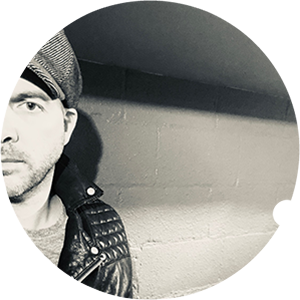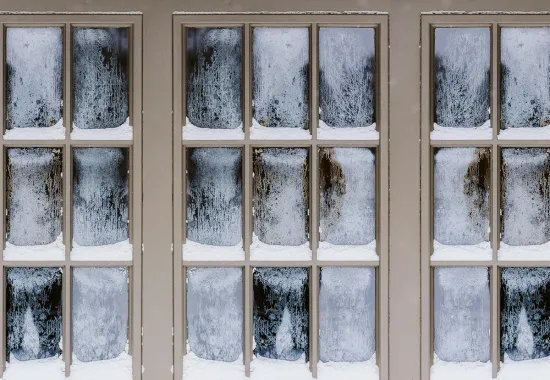White Christmas
By the time Betty Haynes and her sister climbed through their dressing room window and into the taxicab outside Novello’s, my brother was already dead.
One after another, texts and calls rattled my phone, which sat far away on the kitchen counter. Voicemails with urgent requests to Please, please, please call right away stacked up, but I didn’t notice them. I was too busy with “Sisters.” I laughed at the freckle-faced dog boy and wondered if the best things in life did, in fact, happen while folks danced. I didn’t realize my brother was dead until well after the credits rolled when I finally retrieved my phone, intent on some task that immediately evaporated as I scrolled through dozens of notifications. My breath grew shallow and my mind wrestled with a single, impossibly-awkward question: What now? Three days stood between me and Christmas, and finally, my brother was dead.
•
Later that night, I tossed and turned, my sleep flush with all the grace and elegance of a panic attack. Eventually, though, I slipped off and settled, and then suddenly I sat in the sun about a quarter of the way up the first-base side at an empty Dodger Stadium. A single Dodger Dog and a beer occupied a cardboard carrier that sat on the painted concrete below the seat next to me, and I realized that I’d been there before in exactly the same spot with exactly the same cardboard carrier tucked under that very same seat. I was there the day my brother first got hurt, the very day he trapped himself in that awful, tongue-operated wheelchair. That first time, though, I was alone. This time, I was not. This time, my brother was there with me, and no matter how much I swore I could smell the grass and taste the salt on the breeze, no matter how warm and friendly the sun seemed, and no matter how good the Dodger Dog tasted, none of it could be real because my brother was dead. He absolutely couldn’t be there with me sitting a mere two seats away about a quarter of the way up the first-base side of a completely deserted Dodger Stadium. But he was, and I didn’t care if it was real or not because I was so happy to be there with him, just him and me like we’d been back when we were kids sorting baseball cards or playing one-out whiffle ball in the side yard of our house in Loveland.
But my brother wasn’t happy sitting there. He wasn’t happy at all; he was angry. And I wasn’t sure if he was angry because he wanted to watch a game and there wasn’t one or because he hated Dodger Stadium. Or maybe, I considered, he wasn’t happy because he didn’t have a Dodger Dog or a beer, and I did. Perhaps that’s what he wanted more than anything, but a person can’t get a Dodger Dog or a beer when they’re dead because dead people can’t get things that living folks can. Of course, I can’t really be certain what a dead person can or can’t get since I’ve never been dead. As near as I can tell, I’ve only ever been alive.
But I couldn’t ask my brother what he could or couldn’t get. I wanted to but I couldn’t ask him anything because he was yelling and screaming and carrying on something outrageous just like he was the last time I saw him in real life, the very last time we were together the night of our cousin’s wedding. That night, he yelled and screamed and carried on something outrageous first in my car and then at the hotel. He yelled and screamed like a goddamned hellcat, and I still can’t believe that security or the cops or whoever didn’t get called. I’m surprised we didn’t get kicked out of that hotel or worse. I still can’t, for the life of me, understand why he was so goddamned angry and outrageous back then, and I’m not sure why he was so angry and outrageous at Dodger Stadium because what’s there to be angry and outrageous about at Dodger Stadium when the sun’s so warm you can feel it even in the very tip of your heart?
This time, my brother was there with me, and no matter how much I swore I could smell the grass and taste the salt on the breeze...none of it could be real because my brother was dead.
I tried and tried to speak to my brother—to ask him about a beer and a Dodger Dog and just tell him how much I loved him—but my voice wouldn’t quite work. And even though so many words rattled around inside my head, and even though they seemed to be ordering themselves in almost the perfect manner with the perfect tone and sensibility, I couldn’t get them out. I couldn’t cause them to flow from my lips the way the anger and frustration and pure outrageousness spewed from my brother’s. I tried to look at him, to look him right in the eyes, but I couldn’t do that, either; the sun was just too goddamned bright—so bright it was white. I couldn’t really see him that well, and I definitely couldn’t look him in the eyes, because my brother was suddenly behind me. He’d moved a few rows back and few seats over my right shoulder, and the sun would never sit behind the first-base seats during an afternoon game at Dodger Stadium; it would hang overhead and bleach the first-base side seats except for an ever-shrinking line near the very top, shaded by the pale-blue, summit overhang. Of course, there was no game, but regardless it was the afternoon, and the sun should’ve been above us, cooking us hot with its relentless enterprise. It shouldn’t have shined over my shoulder. It shouldn’t have melted my brother’s figure into a corona haze and caused me to have to hold my arm out beyond the bill of my cap just to ever-so-faintly make out my brother and his lips as they moved so fast and nearly disconnected, so full of anger and rage and frustration.
I considered that maybe he was so angry and frustrated because I hadn’t said anything to him. But he probably couldn’t have heard me even if I could’ve formed those perfect words and strung them together in fluid, lovely sentences since, from the time he first appeared, he hadn’t stopped yelling and screaming and carrying on. Initially, I’d been there by myself, alone at Dodger Stadium for the briefest of moments, which made me wonder if my brother was angry because I was there. It had been nice, after all, to be alone, even if only for a passing series of moments.
Suddenly, I realized that my brother wasn’t angry and outrageous because of Dodger Stadium or hot dogs or beers or my inability to look him in the eyes and form the words I so desperately wanted to form. Those things were mostly trivial and had nothing to do with my brother’s anger, nothing to do with the torrent of outrageous, frustrated words that flooded from his mouth and battered my heart. I braced myself, so sure of the hurt and pain those words would bring, but instead, they cascaded away, carried off by the gentle breeze that blew soft and steady down from the San Gabriels.
My brother, I decided, was so awfully angry, brimmed with fuming, outrageous words that he’d sewn and strung together in long, awkward streams that slammed into my heart because he was dead and I wasn’t.
I only hoped that he knew then and always that I loved him so goddamned much that I would’ve bought him as many Dodger Dogs as he could eat and as many beers as he cared to drink. I loved him so much, I’d have done anything for him, taken him anywhere, given him everything.
Maybe he knew all of those things but realized none of them mattered—not anymore—since he was dead and I was not. After all, the Haynes sisters had already climbed out of the dressing room window at Novello’s, and no matter how much they did or did not want to, they most certainly could never climb back.
Recommended
The Monstera
The Wild Women of Brigantine
The Salamander






